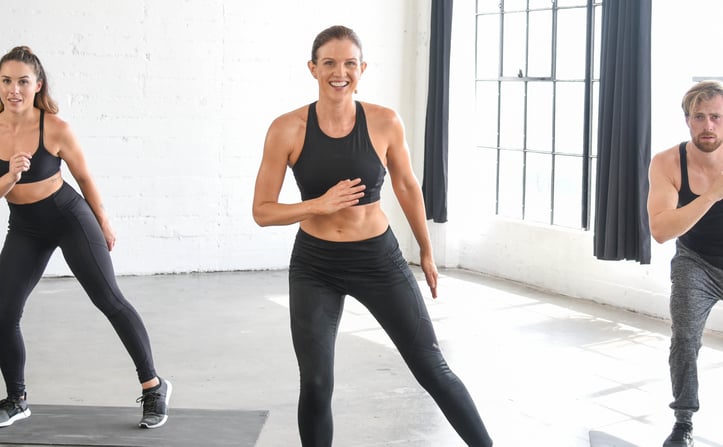How Caring Fitness Staff Drives Motivation & Retention: Research-Backed Insights
How Caring Fitness Staff Drives Motivation & Retention: Research-Backed Insights
For many gym-goers, the difference between a one-month trial and a lifelong fitness habit often boils down to one factor: the people. A 2022 study in the Journal of Sport and Health Science tracked 1,200 members across 15 gyms and found that facilities with "high-empathy staff" saw 37% higher 6-month retention rates than those with transactional service. But what exactly makes a fitness team "caring"—and how does it fuel motivation? Let's break down the research and actionable takeaways.
The Science: Why Empathy Matters for Fitness Adherence
Motivation in fitness isn't just about willpower—it's rooted in psychological needs. The Self-Determination Theory (SDT), a cornerstone of motivation research (Deci & Ryan, 2000), identifies three core drivers: autonomy, competence, and relatedness. Caring staff directly address all three:
- Autonomy: A trainer who asks, "What fitness goals feel meaningful to you?" instead of dictating routines fosters ownership over progress.
- Competence: A front-desk staffer who notices a member struggling with a machine and offers a quick demo builds confidence (NIH, 2019).
- Relatedness: A coach who remembers your name, asks about your weekend, or celebrates your small wins creates a sense of belonging—critical for long-term commitment.
The JSHS study highlighted that members who felt "seen" by staff were 2.3x more likely to report consistent workout habits, even during busy life phases.
Beyond Smiles: 3 Research-Supported Behaviors of Impactful Staff
Not all "friendly" interactions are created equal. Here’s what the data says matters most:
-
Personalized Feedback Over Generic Praise A 2021 ACE (American Council on Exercise) survey found that members rated "specific, action-based feedback" (e.g., "Your form on squats has improved—you’re engaging your glutes better!") as 40% more motivating than vague comments like "Good job!" This ties back to SDT’s competence need: precise guidance helps members feel skilled.
-
Proactive Check-Ins, Not Just Sales Pitches Gyms that trained staff to conduct monthly "progress conversations" (not upsells) saw a 28% drop in mid-contract cancellations (IHRSA, 2023). These check-ins ask: "What’s working? What’s challenging?"—validating the member’s experience and adjusting support accordingly.
-
Cultivating a Community, Not Just Clients NASM (National Academy of Sports Medicine) notes that group fitness instructors who facilitate post-class chats or create WhatsApp groups for members build "social accountability." For beginners, this reduces the "imposter syndrome" that often leads to dropout; for advanced users, it fosters a peer-driven growth mindset.
A Critical Nuance: Tailoring Care to Member Stages
Here’s an underdiscussed insight: Caring behaviors need to adapt to a member’s experience level.
- Beginners (0–6 months): They crave safety and clarity. A trainer who walks them through equipment and normalizes initial struggles (“It’s okay if you can’t lift this yet—we’ll build up!”) reduces anxiety.
- Intermediates (6–18 months): They need challenge and recognition. A coach who notices plateaued progress and collaborates on a new plan keeps motivation high.
- Long-Term Members (18+ months): They thrive on purpose. Staff who connect their fitness to broader life goals (e.g., "Your strength training will help you play with your grandkids pain-free") deepen commitment.
What This Means for You (Member or Staff)
If you’re a gym member: Seek out facilities where staff ask questions, remember details, and prioritize your journey over quotas. Don’t hesitate to share what you need—whether it’s more technical guidance or a cheerleader.
If you’re fitness staff: Invest 10 minutes weekly in one meaningful interaction (a note, a check-in, a tailored tip). Small acts compound—they’re often what turn a casual visitor into a community member.
Final Thought
Fitness isn’t just about reps and sets; it’s about relationships. When staff care, members don’t just stay—they thrive. The next time you step into a gym, notice: Do the staff see you? That might be the key to sticking with your goals for good.

Fit vs Fat: Decoding Health's True Ruler

Pump Up Your Heart: Science-Driven Weight Loss

Wellness Technology: Your Path to Sustainable Weight Loss

A Sensible Guide to Dietary New Year's Resolutions

Prevent Shoulder and Rotator Cuff Injuries with Corrective Exercises

Overcome Fitness Plateaus: 4 Tips for Success

10 x 10 Thanksgiving Day Circuit: A Fitness Guide

Unleash Your Fitness Potential with Kit Rich's Training Secrets

The Future of Fitness: A Guide for Beginners to Intermediates

